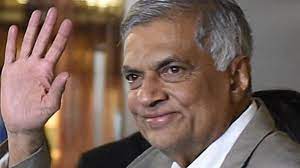Colombo, Oct 20: The much-anticipated parliamentary debate for the adoption of the 22nd Amendment to Sri Lanka’s Constitution aimed at empowering Parliament over the executive president started on Thursday after two previous postponements due to strong opposition from the ruling SLPP party.
The debate was earlier fixed for October 6 and October 7, but it was deferred as Prime Minister Dinesh Gunawardena told the House that the government will have more discussions to seek views of the opposition to make it a “meaningful” exercise.
The vote on the Amendment will now take place on Friday, parliamentary officials said on Thursday.
President Ranil Wickremesinghe had pledged constitutional reforms to appease the demand from the street protesters who ousted his predecessor Gotabaya Rajapaksa.
The 22A was to restore the powers of Parliament which were taken under the executive president by Rajapaksa through the 20th Amendment of 2020. Rajapaksa had reversed the 19A which had empowered parliament over presidency.
Wickremesinghe who has only one seat in the 225-member Assembly relies on support from the Sri Lanka Podujana Peramuna (SLPP) parliamentary group for his legislative capacity.
The amendment must be passed by 150 votes for it to be enacted.
It was not clear if the SLPP would vote to provide the 150 votes required.
Sri Lanka’s main Opposition Samagi Jana Balawegaya (SJB) on Thursday said that it will support the 22nd Amendment provided that no underhand revisions are sneaked in at the committee stage.
Opposition leader Sajith Premadasa welcomed the presentation of the Amendment bill, saying it was a small step in the right direction.
“We see the 22A as a little bit better than the 20A. It is a reform we need to meet international expectations in handling the current crisis in the country,” Premadasa said.
Premadasa told Parliament that the party will vote for the Amendment bill in good faith on the condition that no attempt is made to revise the bill’s prohibition on dual citizens entering Parliament. Nor should there be any attempt to change the President’s power to dissolve Parliament in two and a half years.
“We want the dual citizenship clause to remain and the clause on the president’s ability to dissolve parliament after two and a half years to pass without any changes,” Premadasa said.
Premadasa’s points are the very points that the government parliamentary group had raised objections to.
They openly said they were not in agreement to pass the 22A due to the dual citizenship clause and the two and a half year dissolution rule which they want to be amended to four and a half years as provided by the 19A of 2015.
The Opposition and the civil society groups remained skeptical on the 22A, claiming that it does not curtail the powers of the President nor introduces checks and balances in any meaningful manner.
The draft bill on the 22nd Amendment was approved by the Cabinet and gazetted in August. The 22nd Amendment was originally named 21A and meant to replace the 20A.
The amendment was formulated amid the ongoing economic turmoil in the country which also caused a political crisis.
Under the 20A, the Constitutional Council was converted to a parliamentary council just to rubber stamp presidential powers. The 22A would also have anti-corruption features, a key demand of the protesters.
If passed into law, the amendments would reinstate reforms made in 2015. Rajapaksa reversed those reforms and concentrated power on himself after being elected to office in 2019. (PTI)


